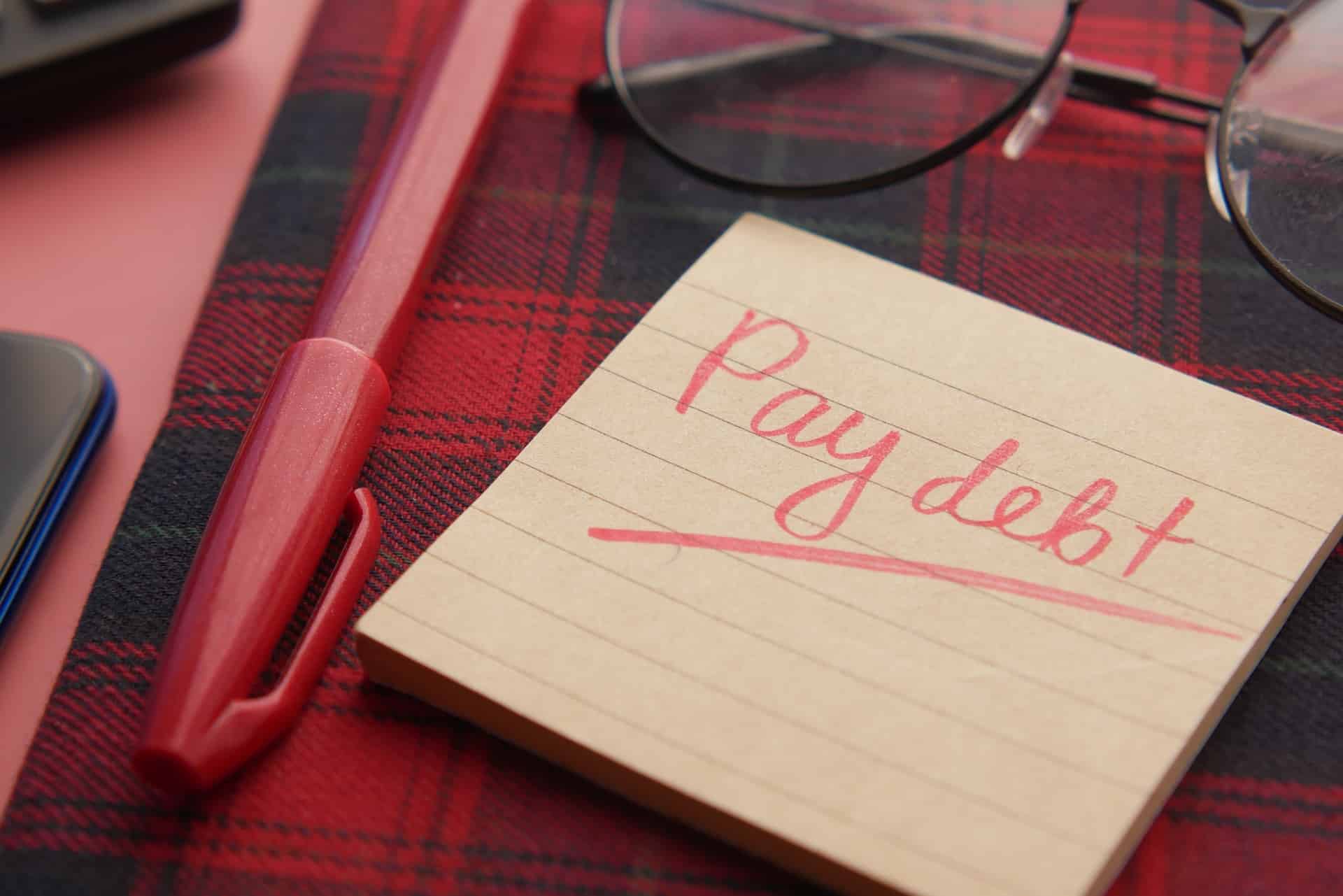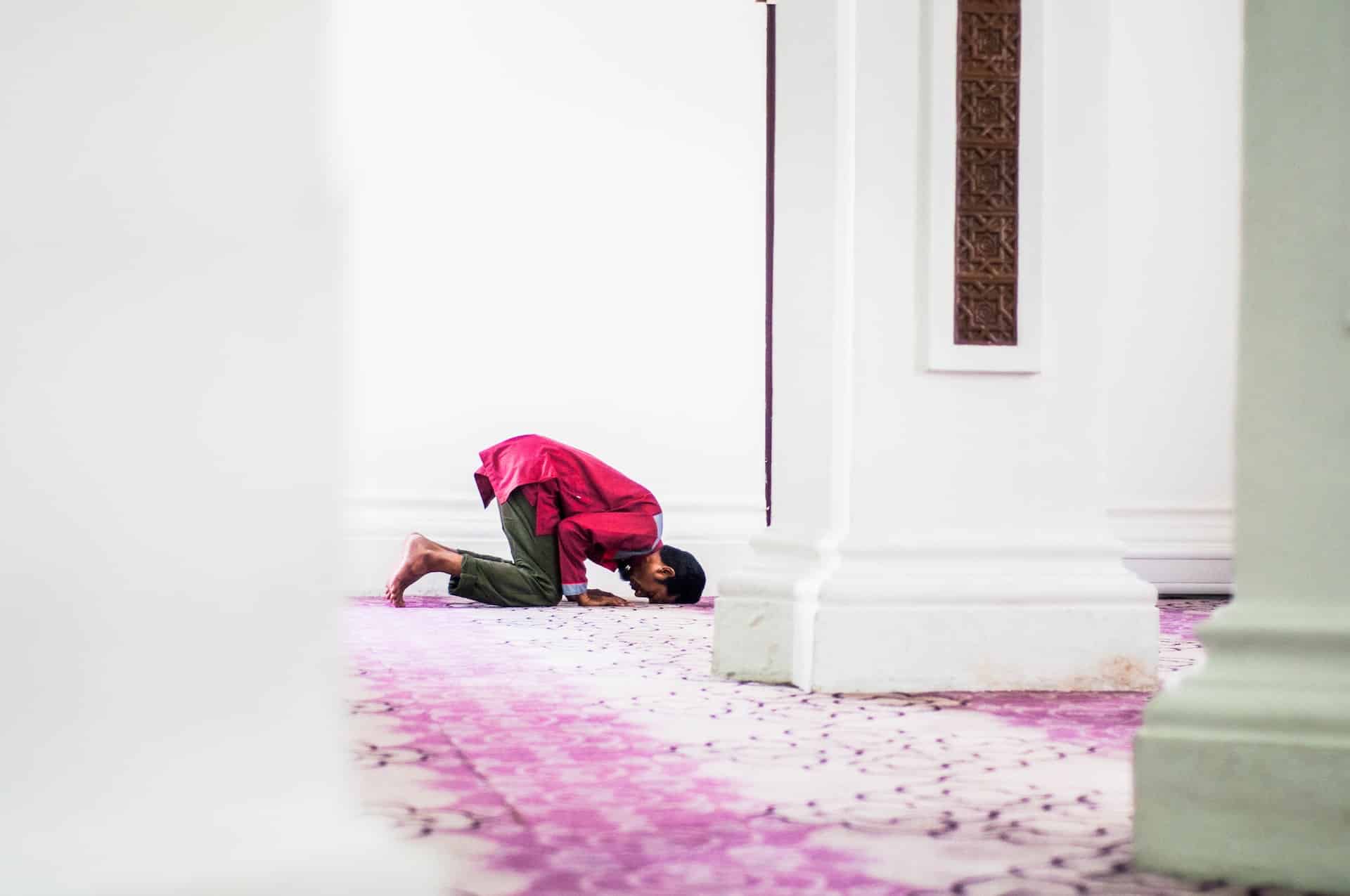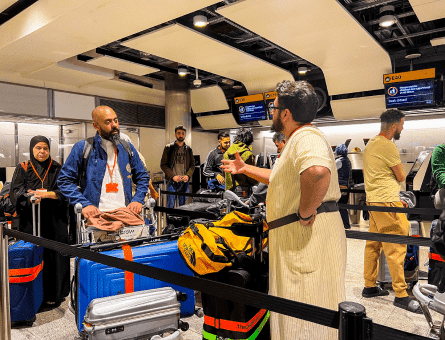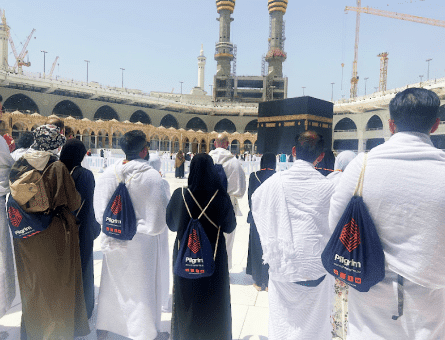Can You Perform Hajj or Umrah If You Have Debt?
Pilgrimage to the Holy Kaaba in Makkah, Saudi Arabia, where Muslims perform the rites of Hajj and Umrah, holds a deep-seated aspiration for believers worldwide. These rituals symbolise a connection to the spiritual heritage of Islam, tracing back to Prophet Ibrahim (AS).
The desire to stand before the Kaaba, engage in rituals of devotion, and seek forgiveness and purification is a testament to Muslims’ yearning for a closer bond with the Divine and their commitment to the teachings of Islam.
The pilgrimage fosters unity, humility, and a sense of community, transcending cultural and geographical boundaries. According to Islamic teachings, Hajj is only mandatory for a person with a sound mind and the financial means to pay for the expenses. This brings us to the question, “Can you perform Hajj or Umrah if you have debt?” Keep reading to learn the answer.
Can You Do Umrah If You Have Debt?
The answer to this question depends on an individual’s current financial state and the debts’ duration. For example, if a person has taken a short-term debt of £1000 from a friend and has committed to return it in 6 months. Then they cannot perform Umrah within that period as it will be considered taking away someone else’s right. That individual can only perform Umrah once they have paid off the debt.
On the other hand, like most people, if you have taken a long-term loan for your house or education. Then you are supposed to pay back the mortgage in the form of monthly instalments over a pre-set period. You are only permitted to go to Umrah if you can pay the instalment on time and cover the Umrah costs. Simply put, in all cases settling the debt must be the priority.

Can You Do Hajj If You Have Debt?
Now, that you know the answer to can you perform Hajj or Umrah if you have debt, let’s move to the second most frequently asked question “Can you do Hajj if you have debt.”
Allah SWT in Surah Al-Imran, verse 97 says, “And Hajj (pilgrimage to Makkah) to the House (Kabah) is a duty that mankind owes to Allâh, those who can afford the expenses (for one’s conveyance, provision and residence).” [Holy Quran, 3:97]
In light of this Quranic verse, it is important to remember that Hajj is mandatory only for physically and financially stable Muslims, meaning that they have the energy to perform all rituals and the funds to pay for the expenses and trips. Otherwise, Hajj isn’t obligatory on an indebted person.
Furthermore, even though interest-based debts are considered haram in Islam, if a person has undertaken debts, they should pay it off as soon as possible, even if it requires delaying Hajj.
Should he not accrue any interest on his debt payments and successfully settle all outstanding dues, he may undertake the Hajj pilgrimage, provided he possesses the financial capacity to repay his debts upon his return. Additionally, if the debt isn’t due before the pilgrimage and you can easily repay the loan after Hajj season, then you are permitted to go for pilgrimage.
When Is Hajj 2024?
Hajj 2024 is expected to be on 14 June 2024, Friday – 19 June 2024, Wednesday. However, note that these dates are only tentative and can vary depending on the sighting of the moon.
Can You Perform Hajj/Umrah If You Have a Mortgage?
Prophet Muhammad (PBUH) said, “The one who dies in a state having even a single (outstanding) gold or silver coin, the matter will be settled (with creditors) through his good deeds, as there is no gold or silver (currency) in the hereafter.” (Ibn Majah, Tabraani)
If you have a mortgage, you should prioritise getting rid of the debt, especially when the value of the liability is more than what you own. This will provide you with mental peace, allowing you to perform pilgrimage rituals whole-heartedly.
However, if you have a stable source of income and believe that you can easily pay the debt after returning from Hajj or Umrah, you must ask the creditor for an extension on the deadline. In this situation, you can only perform Hajj/Umrah if the creditor allows. If they don’t, your first priority should be to pay the mortgage.

Can Someone Pay for Your Hajj?
Yes. There’s nothing wrong with going for Hajj at someone else’s expense, whether it is your father, son, brother, or friend. This doesn’t affect Hajj’s validity as there’s no rule that one should pay for the Hajj expenses by themselves only.
Hajj/Umrah Badal
The term “Badal” means “in lieu of” or “substitution. Thus, performing Umrah or Hajj on behalf of someone else (deceased or disabled person) is called Hajj Badal or Umrah Badal.
Ibn Abbas narrated, “A woman from the tribe of Juhaina came to the Prophet Muhammad (PBUH) and said, “My mother had vowed to perform Hajj, but she died before performing it. May I perform Hajj on my mother’s behalf ?” The Prophet Muhammad (PBUH) replied, “Perform Hajj on her behalf. Had there been a debt on your mother, would you have paid it or not? So, pay Allah’s debt as He has more right to be paid.” (Sahih al-Bukhari)
Abu Razin (RA) once came to the Prophet Muhammad (PBUH) and said, “O Messenger of Allah, my father is an old man who cannot perform Hajj or Umrah, nor can he travel.” The Messenger (PBUH) said, “Perform Hajj and Umrah on behalf of your father.” (Abu Dawud, Tirmidhi)
Who Is Exempt from Performing Hajj?
Any person who isn’t physically and financially able is exempted from Hajj. This includes the people who are sick, weak, elderly, menstruating, mentally ill, and indebted. Additionally, while adult males and females are obligated to perform the rituals of Hajj, it isn’t compulsory for children.
What Are the Conditions for Making Hajj Compulsory on a Person?
Hajj is compulsory for anyone who fulfils the following conditions:
- Is Muslim
- Has a should mind
- Is an adult
- Has the financial means to pay for Hajj expenses and isn’t in debt.
- Is free
How to Make Dua for Hajj and Umrah
If you have health and wealth (enough money to pay for expenses) and want to go for Hajj or Umrah, raise your hand in Salah and make a firm intention telling Allah SWT that you wish to perform the pilgrimage.
Note that there’s no specific dua that you should recite for this purpose. The key is to have a strong Niyyah and trust Allah SWT’s plan, hoping that He will grant you the blessing of visiting His House (Holy Kaaba) for pilgrimage.
Saving Up for Hajj or Umrah
Hajj and Umrah entails very high financial costs. Recite the following dua while intending to save enough funds for the pilgrimage.
اللَّهُمَّ اكْفِنِي بِحَلالِكَ عَنْ حَرَامِكَ، وأَغْنِني بِفَضْلِكَ عَمَّنْ سِوَاكَ
Transliteration: Allāhumma k-finī bi ḥalālika ‘an ḣarāmika wa gh-ninī bi faḋlika ‘amman siwāka
“O Allah! Suffice me with what You have made lawful instead of what You have made unlawful, and make me independent of all others besides You.” (Al-Tirmidhi)

What Do You Say When Someone Says They Are Going to Hajj Or Umrah?
Is someone you know going for Umrah or Hajj? Offer them your assistance and ask them to pray for you and your loved ones during the sacred journey. Here’s what you can say to them:
“May Allah’s blessings light your way, strengthen your faith and bring joy to your heart as you praise and serve Him today, tomorrow, and always.”
“May God take you and bring you back safely.”
“May Allah today grant all your wishes. May he flood your life with happiness and joy with this Umrah… Wishing you a happy Umrah.”
“Have a blessed and safe Umrah journey. Sending you prayers and thoughts. May Allah give you the strength and courage to embrace a new life free of sin.”
In case the pilgrims don’t already know, teach them the following verses to ensure a safe journey to the House of Allah SWT (Holy Kaaba) in Makkah, Saudi Arabia:
بِسْـمِ اللهِ وَالْحَمْـدُ لله، سُـبْحانَ الّذي سَخَّـرَ لَنا هذا وَما كُنّا لَهُ مُقْـرِنين، وَإِنّا إِلى رَبِّنا لَمُنـقَلِبون، الحَمْـدُ لله، الحَمْـدُ لله، الحَمْـدُ لله، اللهُ أكْـبَر، اللهُ أكْـبَر، اللهُ أكْـبَر، سُـبْحانَكَ اللّهُـمَّ إِنّي ظَلَـمْتُ نَفْسي فَاغْـفِرْ لي، فَإِنَّهُ لا يَغْفِـرُ الذُّنوبَ إِلاّ أَنْـت
Translation: “With the Name of Allah. Praise is to Allah. Glory is to Him, Who has provided this for us though we could never have had it by our efforts. Surely, unto our Lord, we are returning. Praise is to Allah. Praise is to Allah. Praise is to Allah. Allah is the Most Great. Allah is the Most Great. Allah is the Most Great. Glory is to You. O Allah, I have wronged my own soul. Forgive me, for surely none forgives sins but You”.
How Do You Ask for Forgiveness Before Leaving for Umrah?
Before leaving for Umrah, one should raise their hands after Salah and ask Allah SWT to forgive them for their sins, purify them, and accept their repentance. Similarly, they should also ask the people they have wronged or harmed for forgiveness.
You can simply say, “I wanted to let you know that I am leaving for Umrah next week. Kindly forgive me if I have ever hurt you intentionally or unintentionally.”
Summary – Can You Perform Hajj or Umrah If You Have Debt?
The answer to the question, “Can you perform Hajj or Umrah if you have debt,” is no. According to the hadith of Prophet Muhammad (PBUH), your priority should be to pay the debt and then perform Hajj or Umrah.
However, if the creditor has given you leverage by extending the deadline, then you can go for Hajj or Umrah. But this is only allowed if you can easily pay the instalments or loan after returning from the pilgrimage
Through His Names
New course with
Ustadh Shabbir Hassan













